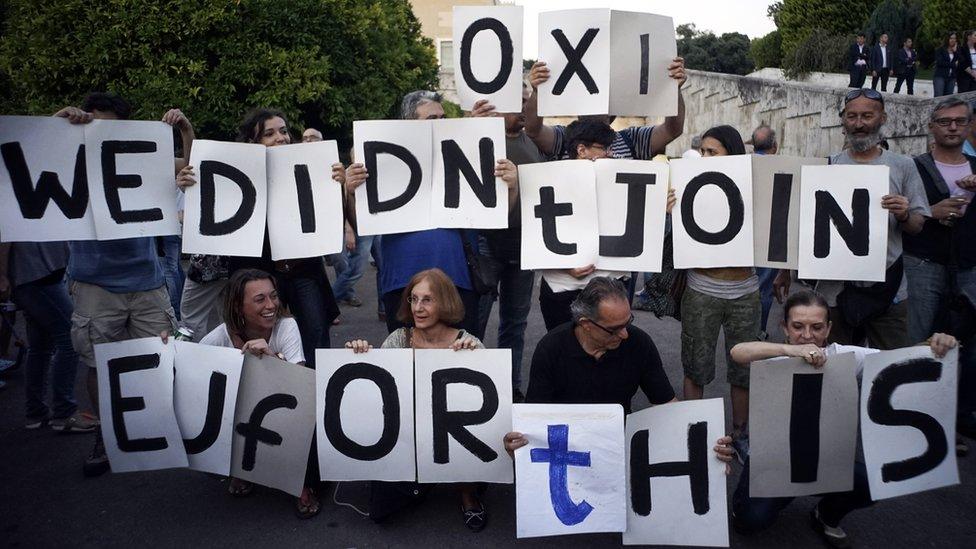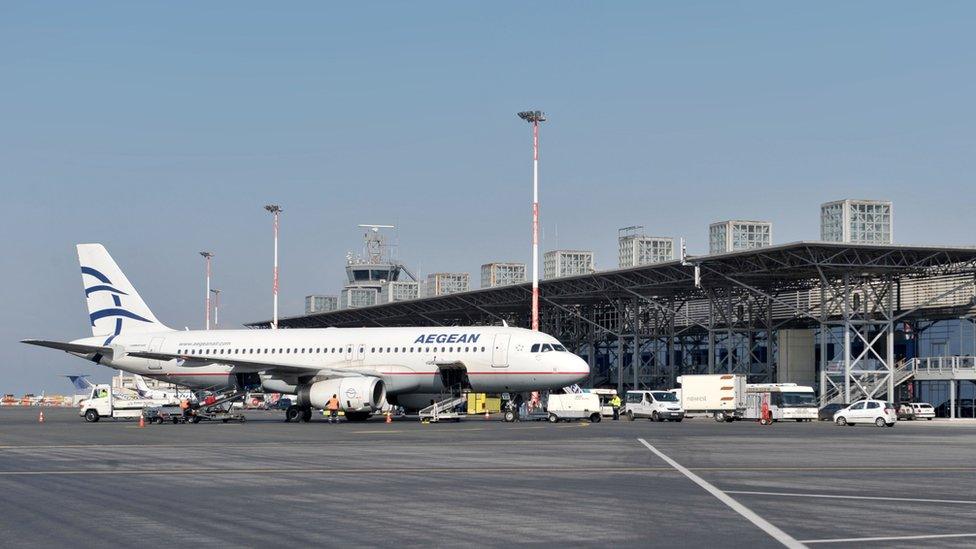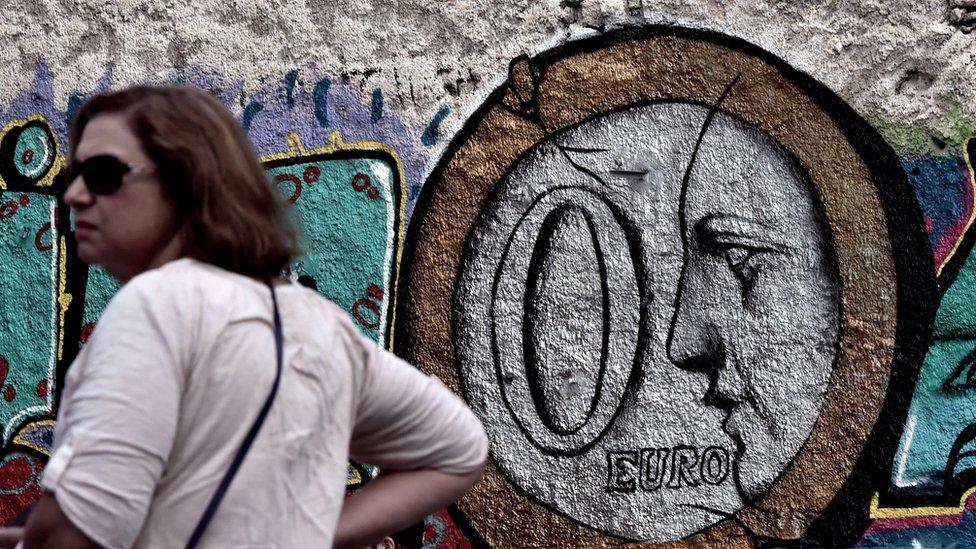Is Greece really on the road to recovery?
- Published

Six months ago I was in Athens standing in front of a TV camera on an exposed and very hot roof top overlooking the Greek parliament.
From sites like that across the capital hundreds of journalists were, like me, reporting live around the world on the possibility of Greece going to the wall within days, if not hours.
That would have meant a bankrupt banking system and almost certainly the forced ejection of Greece from the eurozone.
The government took the talks to the wire several times before agreeing to the terms of a bail out.
There were sighs of relief all round and then the story slowly but steadily retreated from the headlines.

Greece's bailout referendum in the summer saw huge demonstrations in Athens

both for the bailout and the euro...

...and against
Greece survived but now at the end of the year it may be time to assess whether Greece really is on the road to full recovery.
Sell-offs start
Certainly the Greeks have had one great success - we are not all talking about how it will be broke by this time next week.
Despite a narrow majority in parliament and endless opposition from many groups the government is making a start in introducing the reforms that were the condition of that bailout.
Just this month, the left-wing government of Prime Minister Alexis Tsipras agreed to a set of reforms, including allowing Greek banks to sell bad business loans onto foreign buyers.
This will free up capital for the banks and was a condition for the release of the next €1bn (£727bn; $1.08bn) of the bailout.

Germany's Fraport has agreed to lease and manage 14 of the country's airports
Parliament also narrowly approved some privatisation measures, Greece will retain a 51% stake in the national grid operator, Admie, and go ahead with other state sell-offs.
The German airport operator Fraport has agreed to lease and manage 14 Greek airports in a deal worth €1.2bn.
But this is still small beer compared with what the Greek government originally promised. Athens has raised only a few billion euros so far from privatisations versus an original target of €50bn; due to bureaucratic delays and a lack of political will.
Bitter reforms
Greece is committed to a whole host of privatisations and has been for years and yet somehow not many of them seem to happen, it is the kind of foot dragging that keeps the other members of the eurozone awake at night.
Other reforms are still stuck in the mud, made more difficult by a wafer-thin government majority in parliament.
The civil service pay structure is likely to be changed next year but the elephant in the room is Greece's pensions system. This is extremely complicated and expensive and yet reforming it is not only a condition of any further bailout but also political dynamite.

Greek pensioners could see their state pensions cut drastically under proposals now being considered
Pensioners have already endured a whole series of reforms and yet these have only scratched the surface.
Forcing through further changes is going to be extremely unpopular with a large number of people and is also likely to endanger the government's majority in parliament.
Yet the next stage of the bailout from the EU and the IMF is dependent on huge savings from the pension system in 2016, squaring that circle is going to be the big problem for next year.
One of the biggest issues with selling those kind of bitter reforms to the Greek population is that they are yet to see much if any benefit from over five years of efforts to stop the crisis.
Monthly struggle
Economic growth in 2015 was originally predicted to be 2-2.5%. But in large part because of the decision of the Government to take those bailout talks to the wire, that has turned into a 2-2.5% contraction - a deep and painful recession.
Now the experts are predicting once again that the economy will return to growth in 2016, unless something else gets in the way; which is a distinct possibility.

Greece's economy should return to growth next year - unless something else gets in the way
It is therefore far too early to say that Greece is out of danger.
It is still not the master of its own destiny and struggling month by month to enact the reforms it should have introduced years ago, in order to get the next few billion euros that will keep it going, once again.
That is rather better than the situation in June when it was struggling day by day and sometimes hour by hour to find the money to keep the government and the country going.
However, it is hardly a resounding success and it would not take much for Greece to find itself back almost exactly where it was.
A collapse of the government's majority, a failure to pass those pension reforms, the reluctance of the IMF and the eurozone to bail out a country that has failed to do all that it promised, again.
Any and all of those things could find Greece once again on the brink.
That means it may be the right time to put my lightweight suit in the dry cleaners, ready for its next stint on the smoulderingly hot rooftops of central Athens.